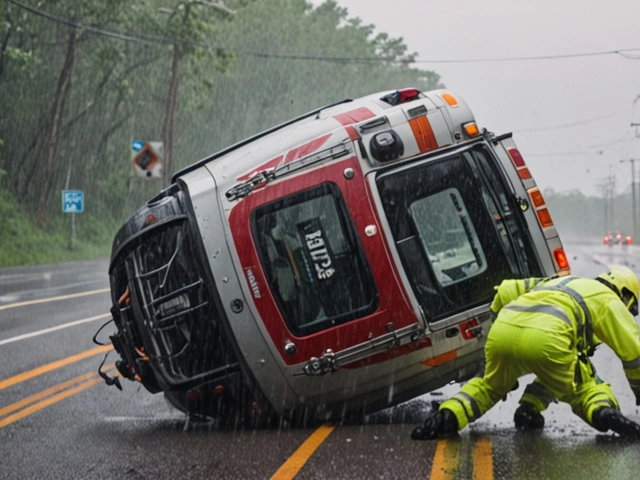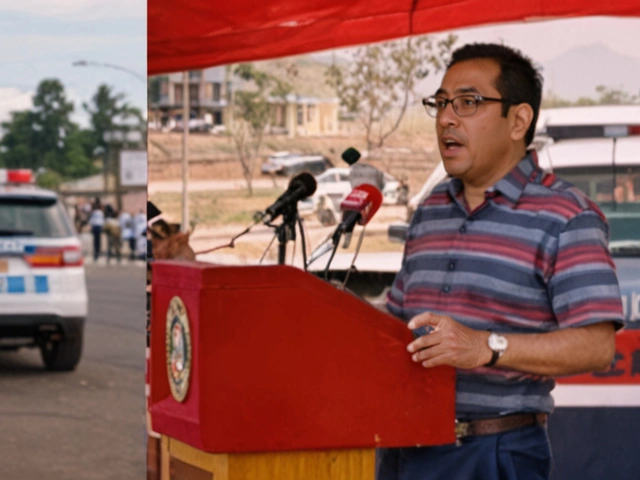
US, UK, Canada Issue Warnings on Potential Violence Amid Nigeria Protests
The governments of the United States, the United Kingdom, and Canada have issued strong warnings to their citizens currently residing in or traveling to Nigeria, emphasizing the potential for violence amid planned protests. With the protests scheduled to start on August 1st, these governments are taking preemptive measures to ensure the safety of their nationals given the volatile situation.
The Backdrop of the Protests
Nigeria is currently facing what many describe as its worst cost-of-living crisis in a generation. High inflation rates and economic hardships have spurred civil society groups to organize protests under the banner #EndBadGovernance. These protests have drawn significant attention and comparisons with recent protests in Kenya, where similar economic grievances were voiced.
The US Mission in Abuja has cautioned American citizens to avoid large gatherings and demonstrations, advising them to stay informed through local media channels. The emphasis is on staying clear of potential hotspots and to adapt plans accordingly to minimize any risks involved.
Warnings from the United Kingdom
The UK High Commission has echoed these sentiments, pinpointing the dates between July 29 and August 10 as particularly concerning. They noted that major cities like Lagos and Abuja could see significant protest activity. Accordingly, British citizens have been advised to be cautious in crowded public places and to avoid areas that may pose threats.
Canada’s Advisory
Similarly, the Canadian government has warned its citizens of the potential for nationwide demonstrations to disrupt public transport and traffic. They specifically mentioned that these protests could turn violent without much warning, urging caution and vigilance. This advisory underscores the unpredictable nature of such demonstrations and the fluidity of the situation on the ground.
A Historical Context
Authorities have emphasized the importance of staying away from protests, recalling the violent incidents that marked the 'End SARS' movement in 2020. That particular wave of protests started as a campaign against police brutality but escalated into a broader movement against bad governance and institutional corruption. The violence that erupted during those demonstrations led to significant loss of life and property, casting a long shadow over current protest planning.
Youth are a significant demographic in Nigeria, and their involvement in the protests is expected to be substantial. However, authorities are urging young people to stay home to avoid a repeat of the violence seen during the 'End SARS' era. The memories of bloodshed and chaos are fresh, making these warnings all the more urgent.
The International Perspective
The involvement of international governments in issuing warnings highlights the global reach and implications of Nigeria's internal issues. The United States, the United Kingdom, and Canada all have vested interests in the stability and safety of Nigeria, not just for their citizens but also for broader diplomatic and economic reasons.
Furthermore, these warnings serve as a reminder of the interconnectedness of the modern world. An unstable Nigeria can have repercussions beyond its borders, affecting international businesses, travel, and diplomatic relations. Therefore, the precautions being issued are not just for immediate physical safety but also for long-term stability and peace in the region.
Local Reactions
On the ground, reactions to the planned protests are mixed. While many support the demonstrations as a legitimate means to voice grievances, there is widespread concern about potential violence and the extent to which it could disrupt daily life. The Nigerian government has yet to announce extensive measures to counter the planned protests, but there is an underlying tension as the dates approach.
Local media has been buzzing with commentary, with many analysts drawing parallels to the 'End SARS' protests and the international response they garnered. There is an air of apprehension, but also a sense of anticipation, as people prepare for what might come.
What Lies Ahead
As August 1st draws closer, the world will be watching Nigeria. Will the protests remain peaceful, or will they descend into chaos? The answer to this question will likely shape not just the immediate future of Nigeria but also its long-term trajectory in dealing with economic and governance challenges.
Regardless of the outcome, the warnings from the US, UK, and Canadian governments serve as a critical reminder of the importance of preparation and awareness. Citizens must heed these advisories to stay safe, and the international community must remain vigilant and supportive, understanding the broader implications of these local protests.
For now, caution remains the watchword, as everyone braces for the potential wave of protests set to sweep Nigeria.





